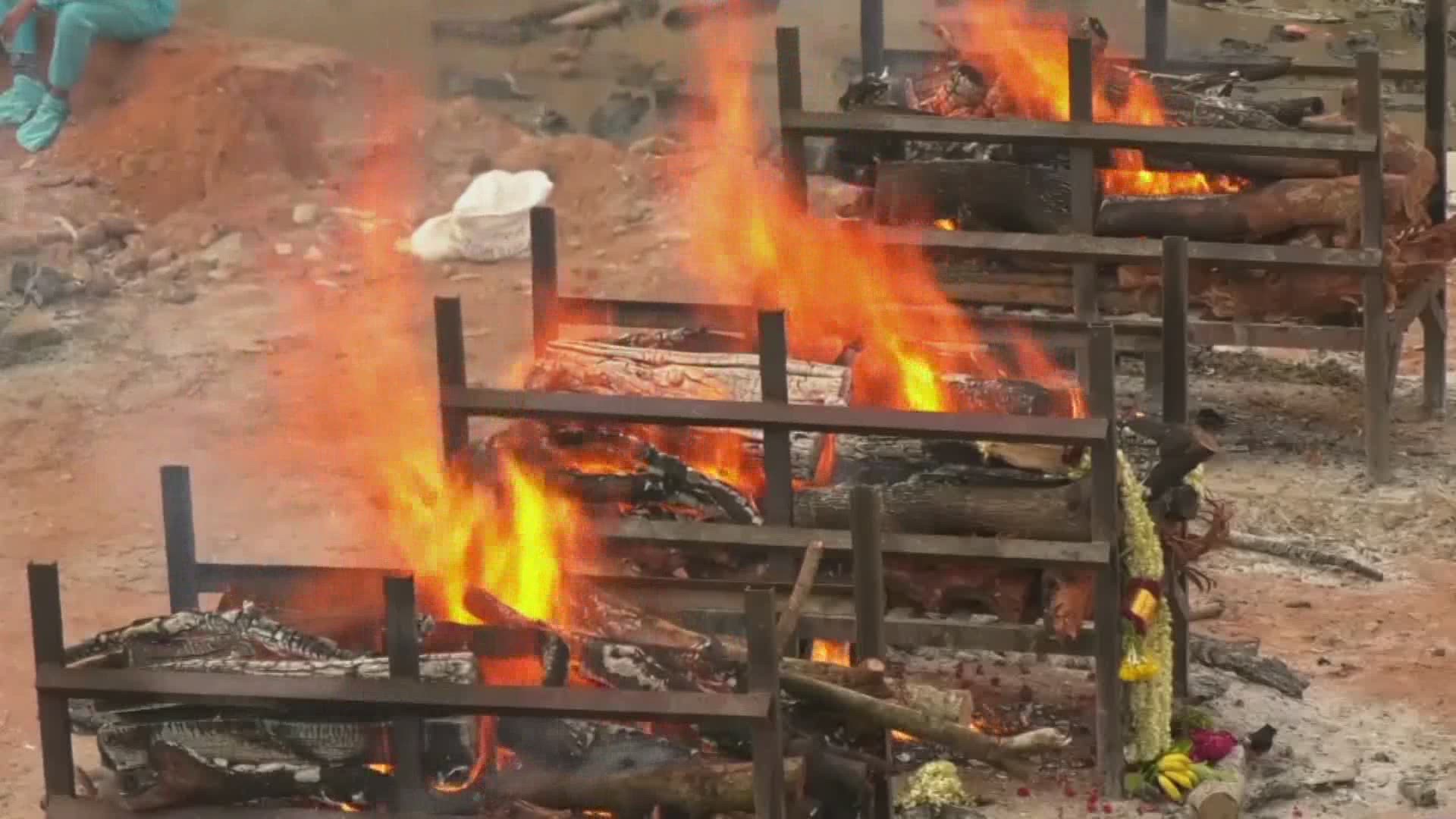NEW ORLEANS — Cases of COVID-19 in India have now topped more than 20 million, and the death toll has surpassed 220,000.
Members of the local Indian American community are reeling from the pandemic’s impact on their families and friends overseas. The images and video of the pandemic in India show a desperate time. In some places, bodies of COVID victims are burned in the streets.
“There are now no hospital beds available. There is no place for them to have funeral pyres, so what they’re doing is maybe gathering bodies and making a big pyre out of that,” Raj Pannu said.
Raj Pannu has called Louisiana home for decades. Through hard work, she now owns a chain of Subway restaurants. It keeps her busy, but recent calls from her family and friends in India are making her concerned.
“They’re saying that the situation is very dire,” Pannu said.
The pandemic’s current impact in the U.S. and India is drastically different. For example, Pannu’s biggest problem is her shortage of workers for her restaurants. In her first home in India, the hospitals there can’t find enough oxygen for COVID Patients.
“Every time I make phone calls, I just keep crying, and at this point, I really don’t like to talk to anybody because it’s very emotional,” Tina Bawa said.
Tina Bawa works in New Orleans. Just last week, her aunt, uncle and cousin in India all died from COVID-19.
“All these people were healthy. They had no health issues at all,” she said.
“It certainly seems that for cases to have gone as high as they have as quickly as they have, it has to be a combination of variants and then some super spreading events,” Dr. Susan Hassig, with the School of Public Health and Tropical Medicine at Tulane University, said.
Dr. Hassig says it’s important to understand that not all of India is in a dire situation. She says the current outbreaks there are regional, as they currently are in states like Michigan and Oregon. Hassig also underscores India’s population, which is more than three times the size of the U.S. population.
Dr. Hassig says the sheer number of people in India is complicating that country’s response to the pandemic. Even with adequate supplies of vaccines, Hassig says India would still have challenges in vaccinating its 1.3 billion people. Evolving variants, Dr. Hassig says, will only strengthen the global reach of the virus and America should be paying attention to India.
“It’s really now about trying to get ahead of the transmission and the potential for variants, because those are what could potentially derail the success we’ve already had with vaccination,” Dr. Hassig said.
“We’re all one people. This is humanity, everyone is affected,” Raj Pannu said.
Pannu says while it may be easy for us to ignore what’s happening in India, the pandemic has shown how a virus can keep countries tangled. If you’re looking for proof, Pannu reminds that COVID-19 was first detected overseas.

